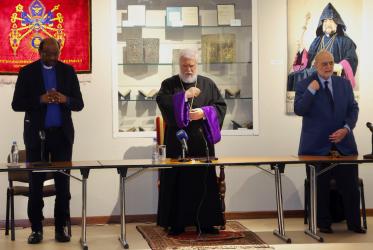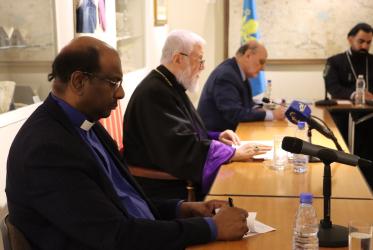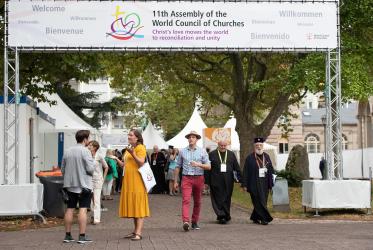Displaying 1 - 20 of 303
WCC general secretary will visit Lebanon
19 March 2024
Ecumenism in the Philippines means hope and resilience
22 August 2023
WCC extends condolences upon passing of Dr Gabriel Habib
13 September 2022
Promoción de la dignidad humana a través del arte
07 September 2022
Förderung der Menschenwürde durch Kunst
07 September 2022
Promotion de la dignité humaine par l’art
07 September 2022
Promoting human dignity through art
06 September 2022







